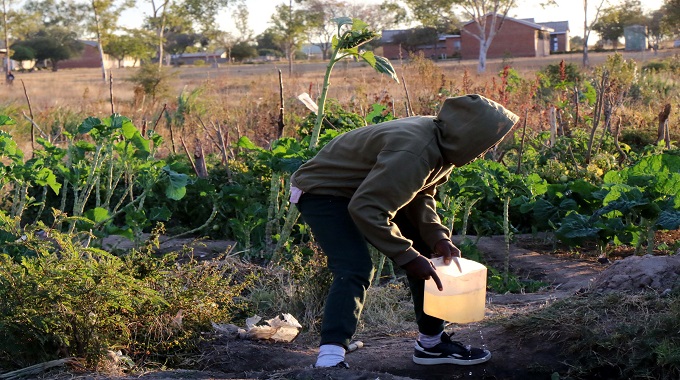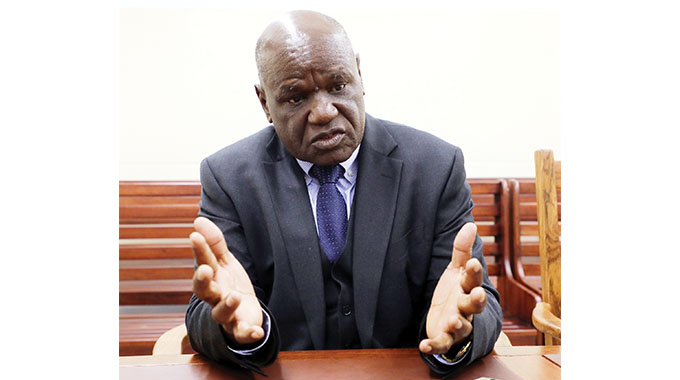Prevention is better than cure

Dr Tatenda Simango
I hope I find you well and in good health.
The past week has been a difficult one for the Zimbabwean health system and the nation as a whole. Government health workers have been incapacitated by the erosion of their income. This has left public health institutions being manned by less experienced recently recruited nursing staff.
Furthermore they are prioritising emergency cases over stable patients. The Covid-19 screens are no longer being done at entry points at the local central hospitals. This is a ticking bomb. Where will the disadvantaged community receive general medical care and screening for life threatening conditions? For over nine months our public health system has been crippled by strikes and go-slows and has been operating below its optimum capacity.
All this is coming at a time when Covid-19 is raging on with an increase in cases every day. The number of infected cases is now reaching over 550 with 6 deaths having been recorded to date. There are Covid-19 positive cases that ran away from quarantine centres that may be spreading the virus in the community.
Scientists worldwide are working tirelessly to come up with an effective treatment model with modest progress recorded. It is unfortunate that we are not running our own trials and research to create home-made solutions to fight this pandemic and similar future threats to our health and livelihood.
The woes do not end there, an increase of diarrhoea cases in the past week have been recorded in Bulawayo, claiming 12 lives. This is not the first time the country has had diarrhoea case increases.
The disheartening part is how the media reports and outlines the potential danger but the relevant authorities wait it out and react when fatalities have been recorded, rather than actively prevent them.
It is commendable that Bulawayo City Council has improved the residential water supply. There is now talk of drilling boreholes in the worst hit areas, which will go a long way in mitigating future outbreaks.
Residents still need to take the necessary precautions to ensure safe drinking water for their families.
Ensure you:
Clean containers for drinking and cooking water
Boil all water that is meant for drinking and cooking
Chlorination is another alternative to purify water. This involves adding unscented sodium hypochlorite (bleach) to water 30 minutes before use according to the manufacturer’s instructions.
Buy fruits and vegetables from a reputable and reliable source. These fruits and vegetables must be cleaned thoroughly to prevent one from getting diarrhoea. Food must be well prepared and served while hot to prevent the risk of diarrhoea. Hand washing with soap before meals and after using the toilet is every important as this reduces the risk of spreading diarrhoea.
The habit of hand washing should now become a way of life, as it not only prevents diarrhoea but also from Covid-19. We cannot control who imports the coronavirus into our community but we can be careful to stop its spread locally. The isolation of infected returnees has helped reduce the escalation of the Covid-19 cases.
It has been three months of aggressive information dissemination on how to prevent/control Covid-19 spread. However, the general population now tends to relax the rules and now living life as normal.
We should not be complacent as we are at a critical point where we need to keep observing;
Cough etiquette.
Social distancing.
Regular hand washing with soap/60 percent alcohol-based sanitiser.
Avoid unnecessary travel.
Wear mask in public.
In light of all the outbreaks affecting the country, the pattern I see is a reactive approach and not a proactive approach. This has cost the nation a life too many. The nation has guidelines on primary health care, which if followed would save lives.
In 1978 the Declaration of Alma-Ata was made where our Government agreed to take urgent action to protect and promote health of all people. The importance of primary health care was underlined. This agreement was inspired by the Chinese bare-foot doctors, southern farmers, who would often work barefoot in the rice paddies, and simultaneously worked as medical practitioners.
This worked to include community participation with the rural provision of health services. In general, preventative care, vaccinations, and disease identification were skills taught to barefoot doctors-in-training.
This eased the need for highly trained staff in delivering basic health care and gave rise to the concept of village health workers in Zimbabwe.
The declaration looked to address equitable health service distribution, meaning each society was given resources and training in line with their needs.
– addresses the main health problems in the community, providing promotive, preventive, curative and rehabilitative services accordingly.
– includes at least: education concerning prevailing health problems and the methods of preventing and controlling them; promotion of food supply and proper nutrition; an adequate supply of safe water and basic sanitation; maternal and child health care, including family planning; immunisation against the major infectious diseases; prevention and control of locally endemic diseases; appropriate treatment of common diseases and injuries; and provision of essential drugs.
– involves, in addition to the health sector, all related sectors and aspects of national and community development, in particular agriculture, animal husbandry, food, industry, education, housing, public works, communications and other sectors; and demands the co-ordinated efforts of all those sectors.
– relies, at local and referral levels, on health workers, including physicians, nurses, midwives, auxiliaries and community workers as applicable, as well as traditional practitioners as needed, suitably trained socially and technically to work as a health team and to respond to the expressed health needs of the community.
– The promotion and protection of the health of the people is essential to sustained economic and social development and contributes to a better quality of life and to world peace.
– The people have the right and duty to participate individually and collectively in the planning and implementation of their health care.
The World Health Organisation (WHO) has reaffirmed the primary health care approach as the most efficient and cost-effective way to organise a health system.
Dr Tatenda Simango can be contacted on [email protected] or follow him on Facebook@ 9th Avenue Surgery.








Comments